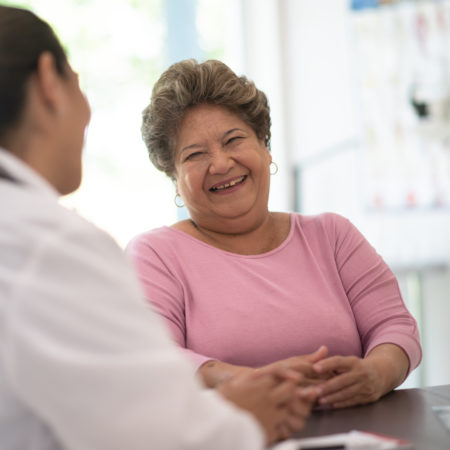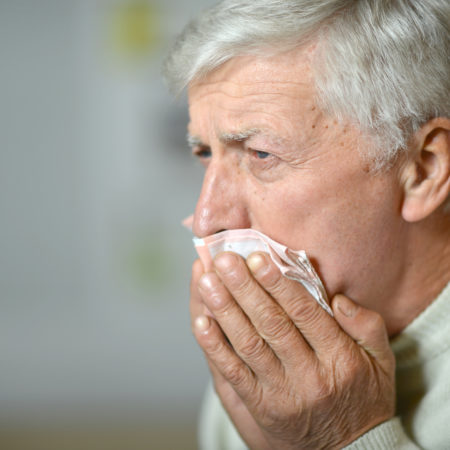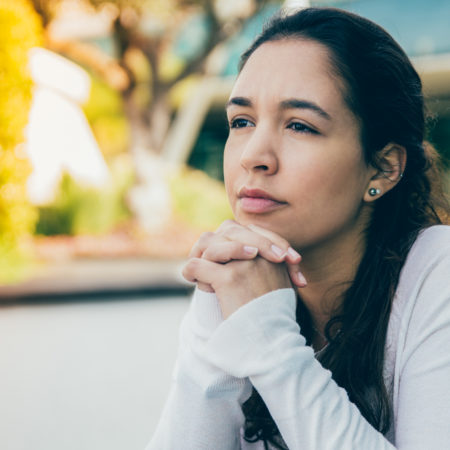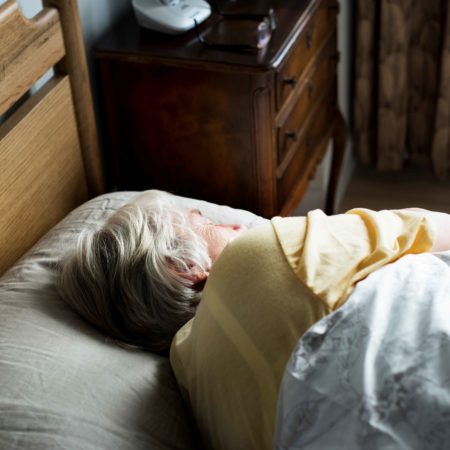
Managing your condition
Ensuring your lung condition is well-managed and you're as well as possible is important. Read tips to manage your condition including connecting with your healthcare team and having an action plan in place.

It is especially important that those at high risk of severe COVID-19, including people living with a lung condition, are protected and take the necessary measures to reduce risk of exposure.
To help stay safe, you can:
COVID-19 vaccines offer significant protection against severe COVID-19 infection. It can be difficult trying to keep up with the latest advice on when to get a vaccine and who is eligible. To assist, the latest recommendations on booster doses are summarised below (as per Department of Health and Aged Care, 2025). You can also check your eligibility for a COVID-19 booster here.
Recommendations by Age Group
75 years and older
65-74 years
18-64 years
5-17 years
Under 5 years
Other Key Information
Individuals are encouraged to discuss their COVID-19 vaccinations with their health practitioner. For more information, visit the Department of Health website here. We’ve answered some of the most frequently asked questions about vaccines, staying well, and what to do if you get COVID-19.
COVID-19 testing rules have changed a lot since the COVID-19 pandemic, but testing for COVID-19 is still important to protect yourself and others. You should get tested for COVID-19 if you have COVID-19 symptoms or have been advised by a health professional to get tested.
The two types of COVID-19 tests available in Australia are:
Most state and territory governments have now stopped asking people to register their positive RAT results online.
Talk to your doctor about which test is right for you, and what to do if you test positive for COVID-19. If you are at risk of becoming very unwell with COVID-19, having a plan for what to do if you test positive for COVID-19 can help you to access to any support or treatments you may need more quickly. If you or your loved one is living with a lung condition, a plan may be developed with your treating healthcare team or GP and could include:
If you test positive for COVID-19, you may be eligible for antiviral treatment if you are:
Additional risk factors include living in residential aged care, pre-existing health conditions such as chronic respiratory conditions, or living remotely with reduced access to higher level healthcare. For a full list of risk factors, visit the Department of Health website. You can also check your eligibility for antivirals here. If you are at risk of becoming very unwell with COVID-19, talk to your doctor about your suitability for antiviral treatment. Together, you can develop a plan to ensure you can access antiviral treatment quickly if you need it.
If you are at higher risk of severe illness from COVID-19, it can help to have a conversation with your GP before contracting COVID-19 about your individual circumstances. Together, you can develop a plan to ensure you can access antiviral treatment quickly if you need it.
For more information on long COVID, visit Lung Foundation Australia’s dedicated long COVID webpages.
Click on your state or territory here to see relevant links to health department advice, translated resources and long COVID clinics (where applicable).

Ensuring your lung condition is well-managed and you're as well as possible is important. Read tips to manage your condition including connecting with your healthcare team and having an action plan in place.

There are measures that you can put in place in your day-to-day life to help prevent the spread of COVID-19 and keep yourself and your loved ones well.

It's normal to feel a range of emotions such as fear, frustration, anxiousness and a lose of confidence. Implementing simple practices in your day-to-day life can help you to manage your mental wellbeing and help you feel more in control.

Regular exercise or movement is widely recognised as one of the best things you can do to improve your wellbeing and reduce symptoms such as breathlessness. If you’re not used to exercising at home it may feel a little strange and daunting and you might find it hard to stay motivated.

Recovering from COVID-19 will be different for everyone and may be affected by a range of factors, including your overall health. Read tips for recovery and managing ongoing symptoms.

We've developed a range of resources and information to help you during this time, including fact sheets, videos and webinars.
